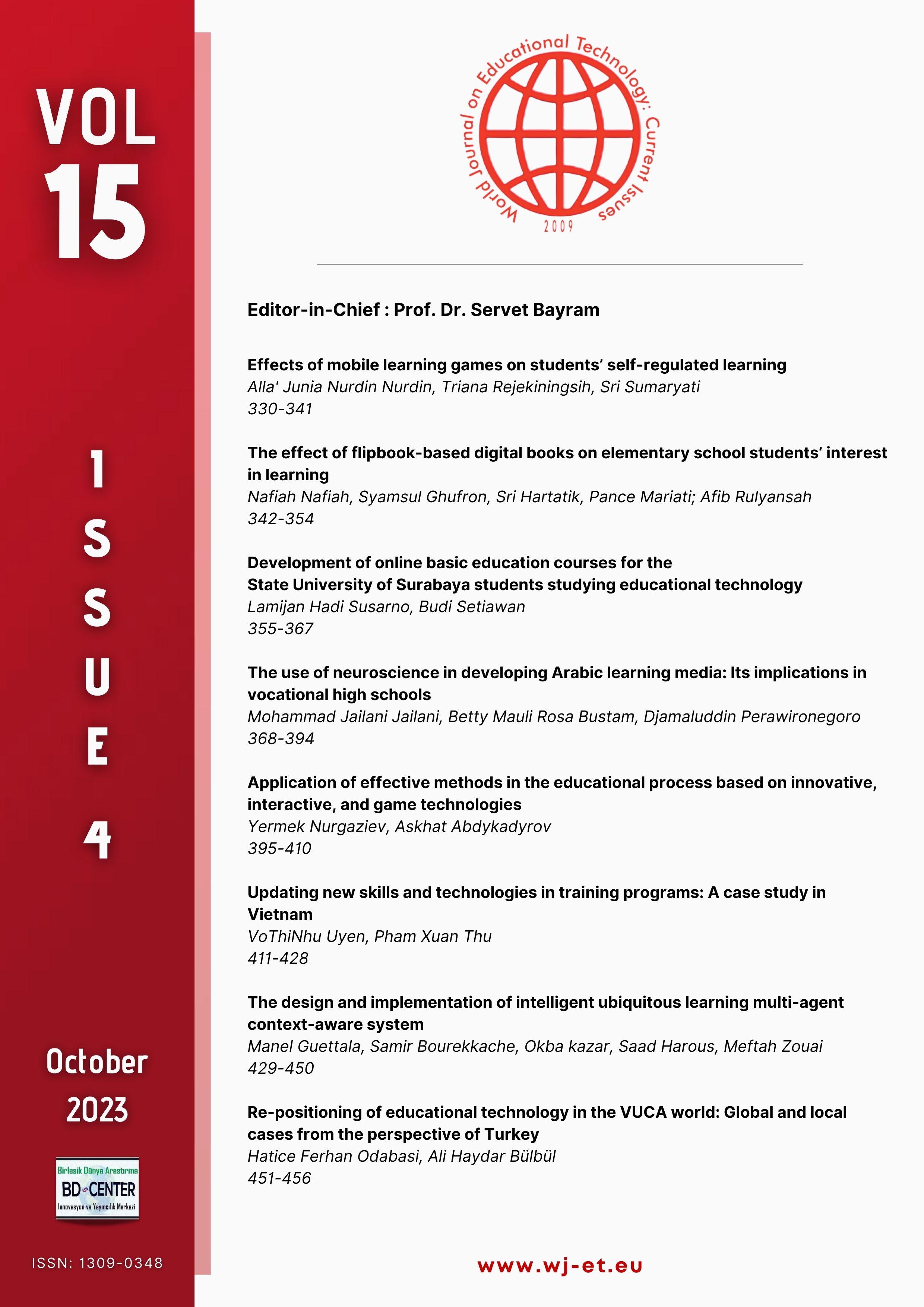Development of online basic education courses for the State University of Surabaya students studying educational technology
Main Article Content
Abstract
The COVID-19 pandemic has forced colleges and universities around the world to switch to online teaching and learning (OTL). This research aims to find out, improve, and make sure that all students have the same opportunities to learn and teach well. Because of this, it is important to look into the different ways university teachers adopt and use online teaching. This research belongs to developing Online Learning for Basic Education courses using vi-learning facilities provided by the State University of Surabaya (UNESA) by involving students majoring in Curriculum and Educational Technology at UNESA. It applied the ADDIE development model that consisted of five stages: Analysis, Design, Development, Implementation, and Evaluation. From the development results, expert validation of learning design was carried out to determine the feasibility of online learning. This research also conducted field trial tests for students to determine the effectiveness of the product development. The results of this study showed that online learning in Basic Education courses was feasible.
Keywords: ADDIE model; basic education; online learning; research and development; virtual learning.
Downloads
Article Details

This work is licensed under a Creative Commons Attribution 4.0 International License.
World Journal on Educational Technology: Current Issues is an Open Access Journal. The copyright holder is the author/s. Licensee Birlesik Dunya Yenilik Arastirma ve Yayincilik Merkezi, North Nicosia, Cyprus. All articles can be downloaded free of charge. Articles published in the Journal are Open-Access articles distributed under CC-BY license [Attribution 4.0 International (CC BY 4.0)].
Birlesik Dunya Yenilik Arastirma ve Yayincilik Merkezi (BD-Center)is a gold open-access publisher. At the point of publication, all articles from our portfolio of journals are immediately and permanently accessible online free of charge. BD-Center articles are published under the CC-BY license [Attribution 4.0 International (CC BY 4.0)], which permits unrestricted use, distribution, and reproduction in any medium, provided the original authors and the source are credited.
